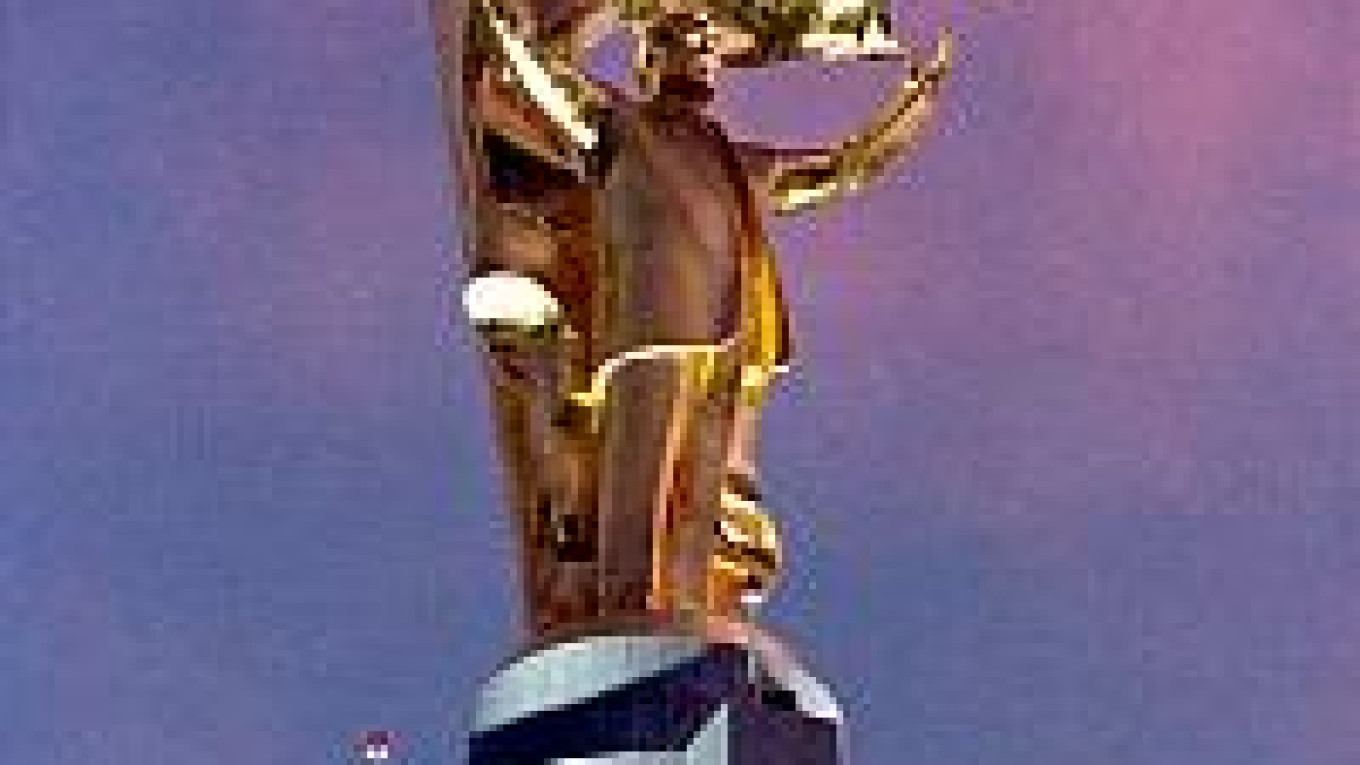No ordinary university textbook, some say it threatens long-term damage to the education of the youth of Turkmenistan.
It is "Ruhnama," a spiritual guide for the Turkmen people living in the "Golden Age" of President Saparmurat Niyazov, better known, like the avenue, as Saparmurat Turkmenbashi the Great.
Turkmenbashi (the name means leader of the Turkmen) wrote the "Ruhnama" and now his people must read it. From the age of 8, it is compulsory throughout school and university.
So what is it?
One Turkmen government minister said in 2000, while the book was still in preparation, that "Ruhnama" would make up for shortcomings in both the Bible and the Koran, neither of which were fully adequate for the spiritual needs of Turkmens.
But Niyazov, apparently heeding advice that he was sailing perilously close to blaspheming against Islam, makes the point in the final edition that "Ruhnama" is not a religious book."
That said, it reads like one. Take the first sentence: "My Dear Nation, this book, written with the help of inspiration sent to my heart by the God who created this wonderful universe and who is able to do whatever He wills, is Turkmen 'Ruhnama.'"
Later he says: "The never ending spiritual source for a true Turkmen, who continuously ponders on his spiritual world, who really worries about his well-being, who is self-conscious, alert and careful about enhancing his intellectual, physical and spiritual capacities, should be the 'Ruhnama.'"
Niyazov made world headlines in August when he renamed the months of the year after himself, his mother and "Ruhnama," among others. But while some of his pronouncements have caused amusement, "Ruhnama" is a huge source of concern in Ashgabat and throughout Turkmenistan: It is becoming the centerpiece of the country's education system, the core of all learning.
Paraschiva Badescu, ambassador of the Organization for Security and Cooperation in Europe to Turkmenistan, says many disciplines have simply been eliminated from the school curriculum, which has effectively been reduced to the study of the "Ruhnama" and some mathematics. "The issue of education is the issue of greatest concern for Turkmenistan as it affects all future generations. If the international community does not take the necessary measures, it will create huge isolation for this country and will create an army of uneducated people," she said.
A source in the Turkmen Foreign Ministry said there were still other subjects taught in schools. But he added: "It's true that 'Ruhnama' has become one of the core subjects of the education of schoolchildren and students."
Badescu fears even students at elite universities like the one in Ashgabat will not be able to go abroad for further education as they will lack qualifications.
One Turkmen parent speaking on condition of anonymity, like so many in this country, said many parents are now worrying about how to find private tuition for their children. "It's the No. 1 concern for us," he said.
Not just education but access to all information is being restricted. Cable television from Russia has recently been cut and subscriptions to Russian newspapers -- frequently critical of developments in Turkmenistan -- stopped.
Ashgabat's central Cafe Florida, until recently a bustling Internet cafe, now boasts a couple of pool tables but no Internet terminals. Asked what had happened, a waitress muttered vaguely, "The ministry withdrew permission."
Turkmenistan has long regarded itself as a largely secular society -- one reason why introducing "Ruhnama" was possible with so little fuss.
Hence the surprise when, early in Niyazov's presidency and before he started work on "Ruhnama," mosques started appearing across the country.
One such is at Geok-Tepe, an hour's drive from Ashgabat and the site of a famous battle where Russian General Mikhail Skobelev wiped out 20,000 Turkmens in 1881 and finally brought Central Asia under the undisputed authority of the tsar. Built on the orders of Niyazov, it is named after him: the mosque of Saparmurat Haji. "The mosque can hold 8,000 people," a guide said. "But only around 15 people attend prayers every day, with perhaps 50 on Friday."
In the mosque is a bookshelf full of copies of the Koran. A quick look turns up the predictable finding: lurking among them are two copies of "Ruhnama."
A Message from The Moscow Times:
Dear readers,
We are facing unprecedented challenges. Russia's Prosecutor General's Office has designated The Moscow Times as an "undesirable" organization, criminalizing our work and putting our staff at risk of prosecution. This follows our earlier unjust labeling as a "foreign agent."
These actions are direct attempts to silence independent journalism in Russia. The authorities claim our work "discredits the decisions of the Russian leadership." We see things differently: we strive to provide accurate, unbiased reporting on Russia.
We, the journalists of The Moscow Times, refuse to be silenced. But to continue our work, we need your help.
Your support, no matter how small, makes a world of difference. If you can, please support us monthly starting from just $2. It's quick to set up, and every contribution makes a significant impact.
By supporting The Moscow Times, you're defending open, independent journalism in the face of repression. Thank you for standing with us.
Remind me later.


